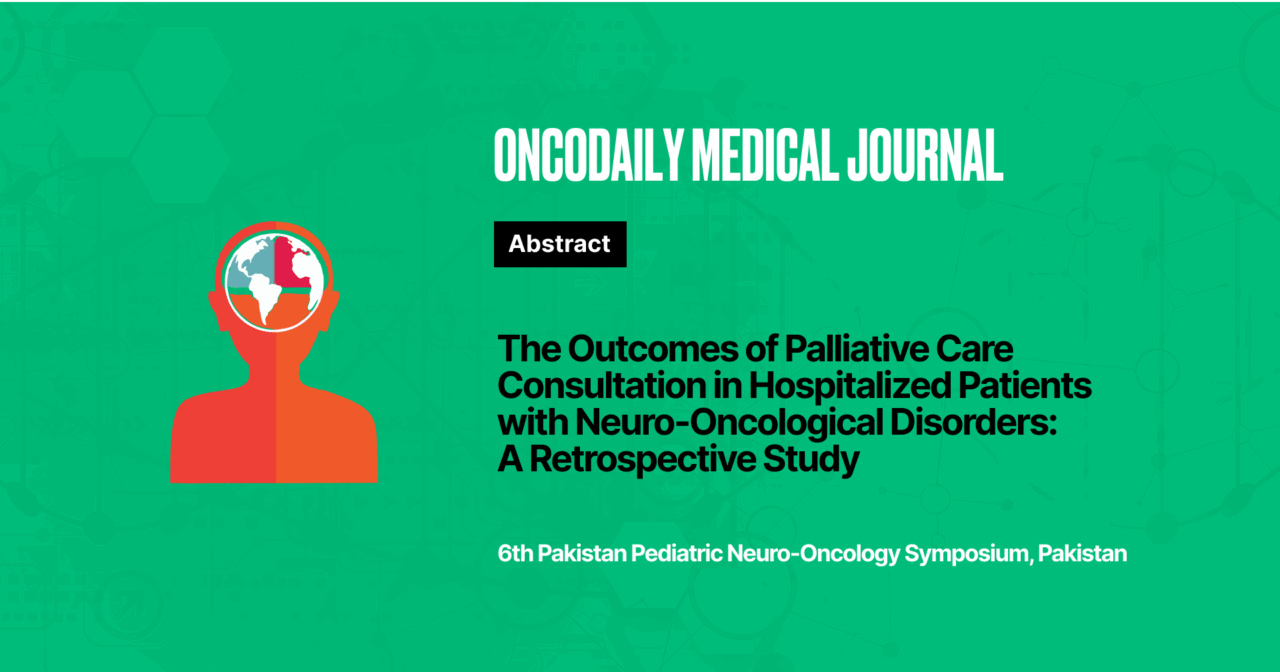The Outcomes of Palliative Care Consultation in Hospitalized Patients with Neuro-Oncological Disorders: A Retrospective Study
Abstract
Introduction: Neuro-oncological diseases, including glioblastoma, primary brain tumors, and brain metastases, represent a significant burden on patients and healthcare systems. These conditions are often associated with debilitating neurological deficits, cognitive decline, and profound functional impairment, leading to a complex clinical course with high symptom burden and challenging treatment decisions.
Palliative care plays a crucial role in improving the quality of life for neuro-oncology patients by providing symptom management, psychological support, and guidance for complex medical decisions. However, despite its benefits, palliative care consultation is often underutilized in neuro-oncology inpatients. The objective of this study is to evaluate the outcomes of palliative care consultation in patients hospitalized with neuro-oncological diagnoses.
Methodology: This retrospective observational study included 100 neuro-oncology patients who received palliative care consultations at Aga Khan University Hospital from 2017 to 2023. Data was analyzed using SPSS to assess changes in code status, length of stay, 30-day readmission rates, and use of post-discharge services.
Results: Glioblastoma was the most common diagnosis (51.5%). Following consultation, 23% of patients had a change in code status. Code status discussions were significantly associated with these changes (χ²(1, N = 100) = 57.98, p < .001). Most patients (89%) were discharged within 7 days. Readmission within 30 days occurred in 14.1% of cases. Half of the patients attended outpatient palliative follow-up. Community service utilization remained limited: only 9% received nurse follow-up, and 27% involved a home physician post-discharge.
Conclusion: Our study adds to the growing evidence that palliative care consultations significantly influence care planning in neuro-oncological patients, particularly by increasing code status discussions and facilitating comfort-focused care. Early and equitable integration of PCC should be prioritized to optimize patient-centered outcomes and resource utilization.
Conflict of Interest: None
Funding: None
Disclosure statement: None
License: This article is published under the terms of the Creative Commons Attribution 4.0 International License (CC BY 4.0).
©️Asra Taj, 2025. This license permits unrestricted use, distribution, and reproduction in any medium, provided the original author and source are credited.





